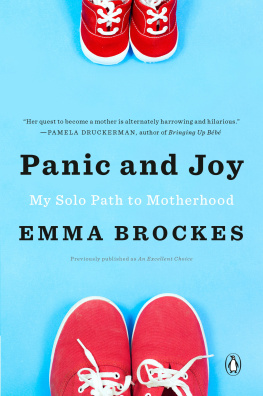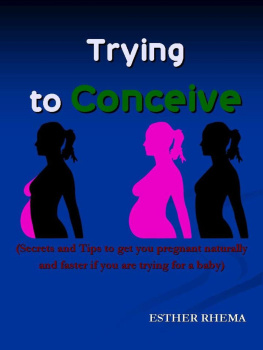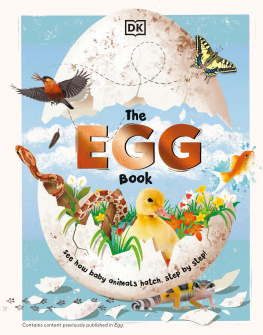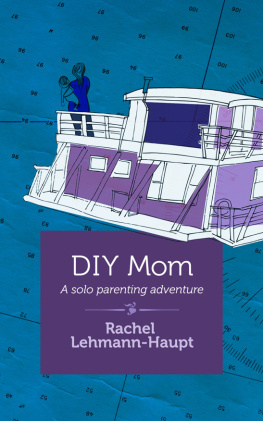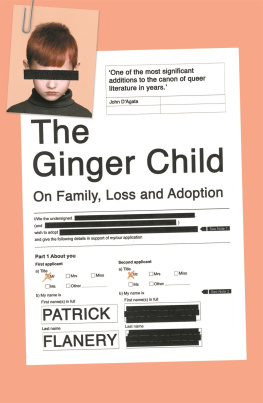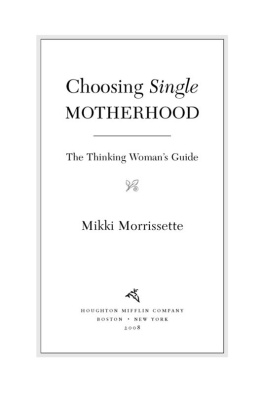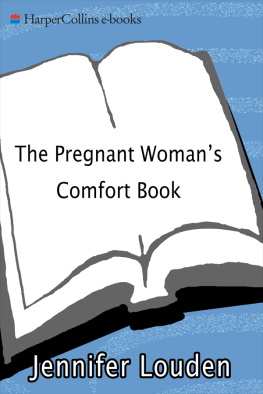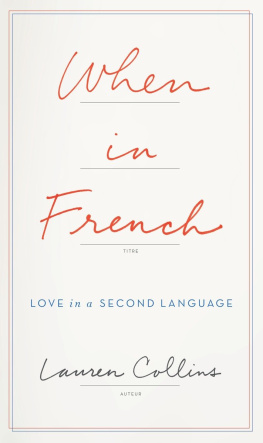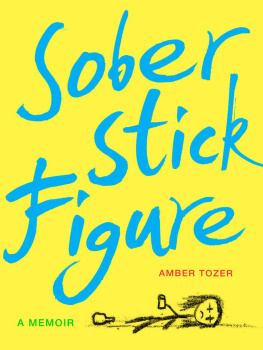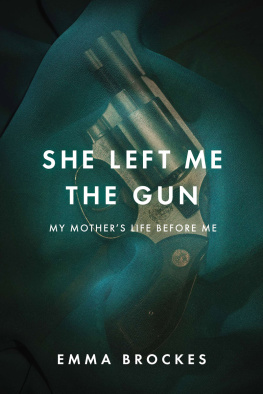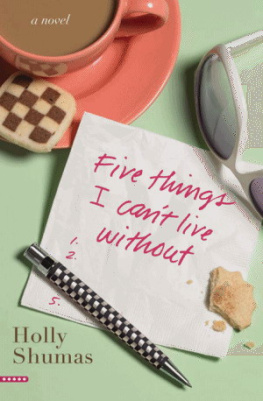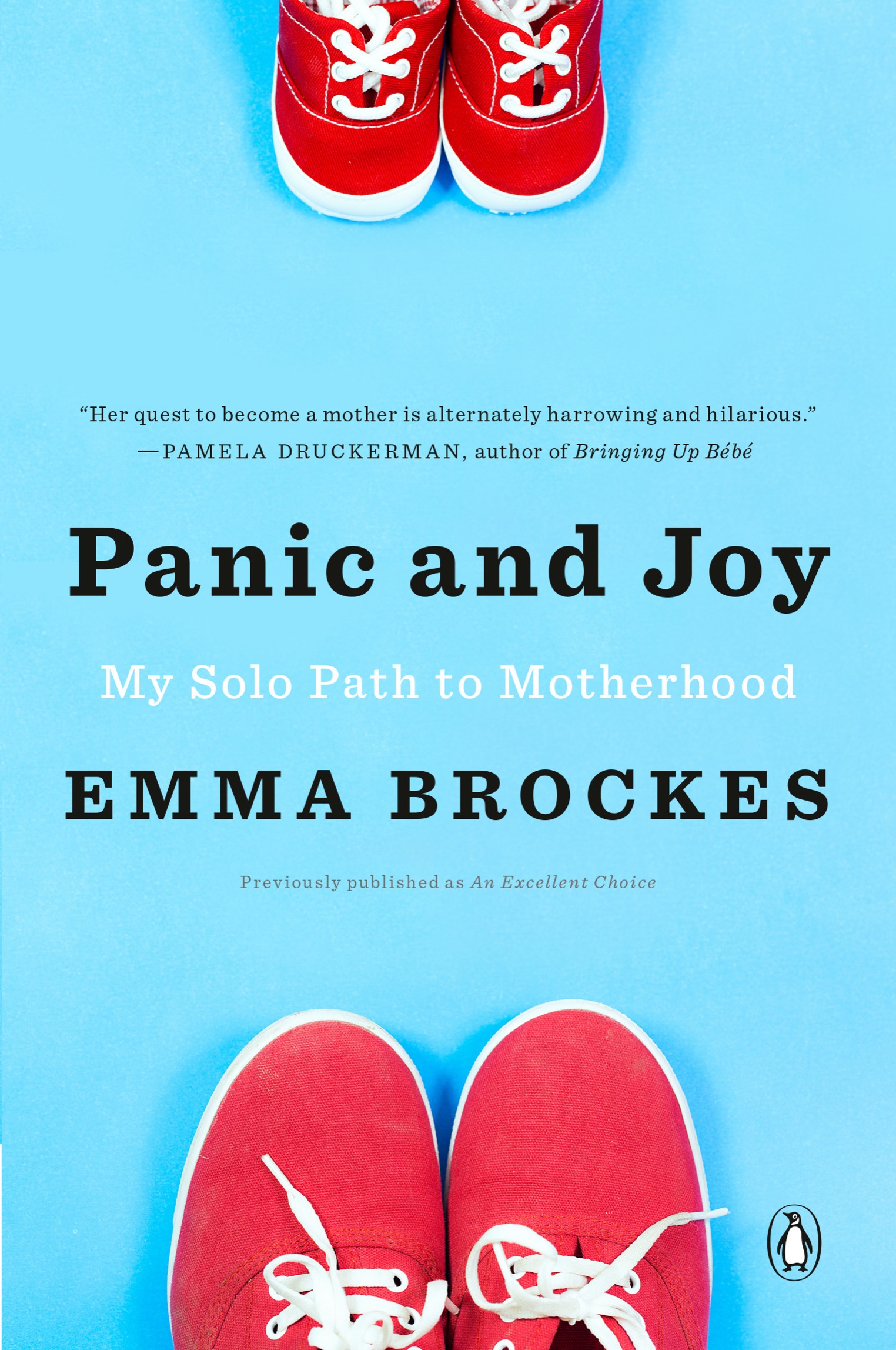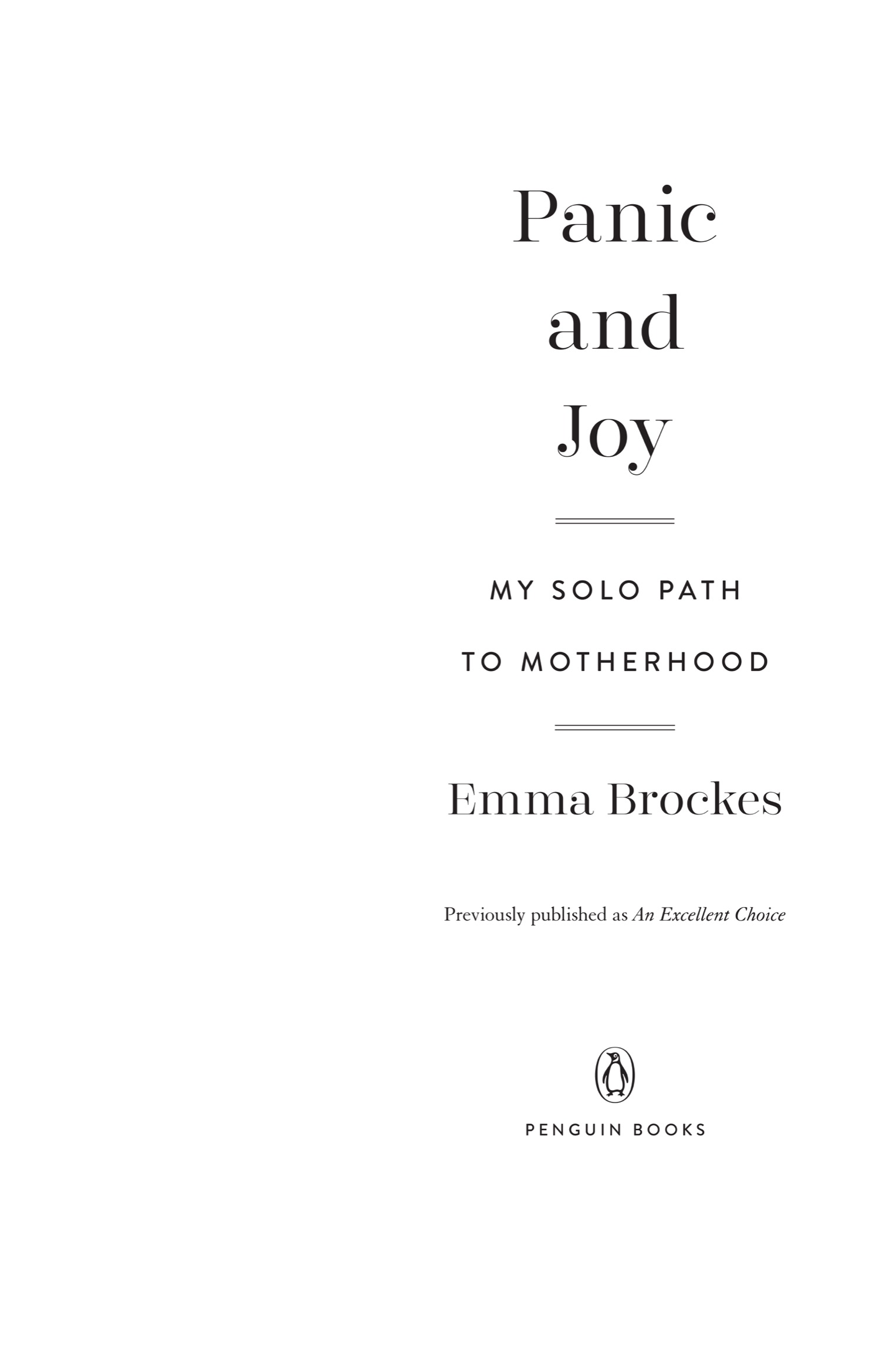Penguin supports copyright. Copyright fuels creativity, encourages diverse voices, promotes free speech, and creates a vibrant culture. Thank you for buying an authorized edition of this book and for complying with copyright laws by not reproducing, scanning, or distributing any part of it in any form without permission. You are supporting writers and allowing Penguin to continue to publish books for every reader.
Prologue
EIGHT P.M. IS A DANGEROUS TIME in my household. If everything has gone well in the preceding few hours, two out of the three of us will be sleeping, but its a light sleep, easily broken. If everything has gone badly, two will be wailing. There is an indeterminate stage, when one is asleep and one wakes up, in which case I have approximately four and a half seconds from the sound of the first murmur to rise from the sofa, skid down the hall in my socks, cross the bedroom in two Spiderman-style leaps and soothe her to sleep before she yells and wakes up the other one. This is what it is to be outnumbered by ones children: you are always ready to run.
The anxiety of bedtime is known to all parentsthe fact that for babies under two, the trajectory from afternoon into evening must be negotiated with the precision of a space shuttle reentering the earths atmosphere (too steep and you will trigger the babys indignant rage; too shallow and she will bounce off into overtiredness, never to return)but it is felt most acutely, perhaps, by single parents. For us, the danger of evening isnt only in the wailing, the stress and the tiredness. It is in those close-of-day hours when we are inclined to feel the strangeness of our circumstance most keenlyin my case, the manifold strangeness of being a Briton in Manhattan and a single mother of twin girls, with a partner, or partner-of-sorts, who lives with her three-year-old son in the apartment upstairs.
This scenario is not the fruit of careful planning. Even five years ago, when I first started thinking that if I wanted a baby then Id better get on with it, all my imagination would stretch to was the blurry outline of a small, portable infant whom I could pop into my bag and take with me on jobs to L.A., or out to dinner in New York, where it would lie quietly in its car seat under the table. It would have my surname and dark hair like me, and if it was a boy, Id raise him gay so we could watch old musicals together on Sunday afternoons. If it was a girl, shed be bookish and serious with straight bangs across her forehead, like a smaller version of Amelie, or Matilda without the telekinesis.
How this baby would come into being I had no idea, but given that I was, at the time, living alone in a walk-up in Brooklyn, with unstable immigration status and a fluctuating income, I had a few things to figure out first. I was also in a relationship with a woman. L was three years older than me and wanted a baby, too, which would seem to offer an obvious route toward a somewhat conventional family arrangement. The only problem was this: we didnt want the same baby.
Before I go on, I should say that L is not a writer and finds the endless use to which I put my own life distastefulI cant imagine whyand so, in the story that follows, the ins and outs of our relationship arent something I can get overly into. What I can say is this: she and I were not twenty-two-year-old newlyweds. We were women in our late thirties who, when we met, had been around long enough to know our own natures and be somewhat unflinching in regard to accommodating them. She did not want a baby as an expression of her love for me. I did not want a baby as a reflection of my love for her. I wanted a baby because I wanted a baby, and if Im forced to give more of a reason than that, the best I can do is to say that, as in most things, from how I make scrambled eggs (with water, not milk) to how I fight (indirectly), concede (grudgingly), compete (overly), love (jealously) and hate (over decades, and with an overdeveloped appetite for revenge), it probably has to do with the relationship I had with my mother. Anyway, whatever it was, it had nothing to do with the person I was seeing.
Clearly this presented me with a number of problems. The choices available to thirty-six-year-old single women who want babies have not, historically, been wildly attractive. You can get lucky. You can get promiscuous. You can, as women essayists pop up every few years to remind us, settle for a partner youre not wholly into, that is, if you can find someone abject enough to agree. You can turn your life upside down at the first whiff of romance. In the past few years, I have watched as friends, or friends of friends, have moved from New York to St. Louis, the West Coast, London or, in the most extreme case, Bali to be with a man. (I win! said the one who went to Bali.) These women, all aware of and grimly amused by this trend, put it this way: you can live in New York and never meet anyone or you can move to the other side of the world, change your job, abandon your friends, but win the jackpot of being in a couple. (The landscape is slightly different for single gay friends, who have better luck in the cities, but suffer the same uncertainty as to whether the person theyve met is the right one to have kids with.) No man I know has, in the early stages of a relationship, ever moved to where his girlfriend was living unless he had at least one other good reason for doing so.
There are two further possibilities: resign yourself to the fact its not going to happen, or pull the emergency cord and do it alone.
I should pause here to acknowledge that being a single parent is still, for the most part, not a matter of choice but of unforeseen circumstance and as such makes what Im talking aboutelective single motherhoodlaughably decadent, a bunch of well-heeled professional women fretting over how to have babies, when the vast majority of single mothers are just trying to get by. Of the ten million single parents in the United States, eight million of whom are women, nearly half live below the poverty line.
The very definition of single parenthood exists on a sliding scale, and because competition over who has it worst is often as fierce as it is over who has it best, I should also own to the fact that having L upstairs insulates me from many of the anxieties of raising babies alone. Single mothers with no help at all will feel superior to me, just as I feel superior to divorces with big alimony settlements or anyone with fewer than two babies or women who have their own mothers on hand, and we all feel superior to married women who say things like Daves off golfing and Im a single mum for the weekend!
This petty machismo is, in my experience, outmeasured by the solidarity among women raising kids on their own, but in any case, this is not a book about my life as a single parent, the difficulties of which are comparatively small and ordinary compared with those of the period immediately preceding it. These were the months and years of my mid- to late thirties when every day seemed to bring another set of terrifying and uniquely irreversible decisions. Am I really going to do this? How am I going to do this? How much will it cost? Can I afford it? How alone will I be? Where will we live? Is it too weird? What if my kid doesnt look like me? Is it immoral? What if it doesnt work? What if it does work? Can I use it as an anchor baby? Am I ready to be a single mother? How I negotiated these decisions in the midst of all the advice, scolding and general hysteria that still attends the way in which a woman has, or doesnt have, children is the main concern of this book.

